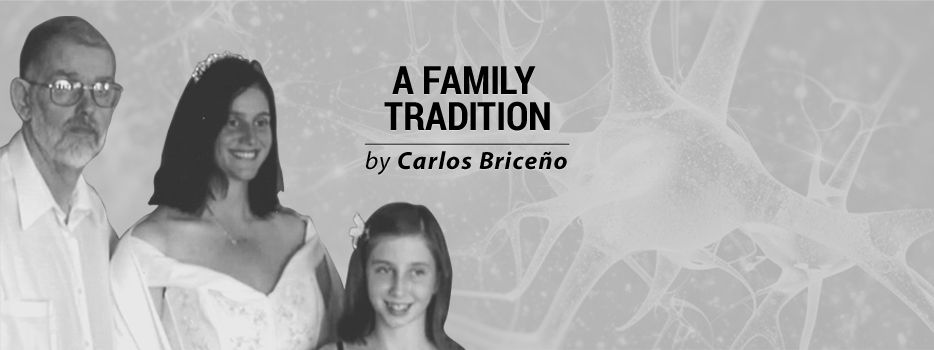It’s Not About You … It’s About Me
Written by |

I have decided to get my wife a T-shirt that reads, “It’s not you, it’s me.”
I want to get it for her so she can wear it each time she visits a doctor.
As if her having Huntington’s disease is not bad enough, eight months ago she started experiencing hives. She also found out she has issues with anemia. Since they are not related medical conditions, she needs to go to multiple specialists, which, of course, means more visits to see various doctors.
Jill has sensory issues; she can’t stand being touched, which makes it difficult, under the best of circumstances, for her to go to the doctor. To add gasoline to the fire, she also has “white coat syndrome.” With all of the additional medical issues she has been having — including anxiousness, a Huntington’s symptom — each visit has been exceedingly difficult for her.
Needless to say, as each appointment looms, her anxiety levels rises. By the time she arrives at the doctor’s office, she is like a coiled rattlesnake ready to bite. This scenario happens every visit, even with doctors she’s familiar with.
It makes me sad to witness her face flush, her blood pressure skyrocket, and her nervous energy rise like a hot air balloon during her doctor visits because she is not normally like this. My wife is typically the calmest, most logical person I have ever met.
Recently, I realized that she experiences doctor visits differently from most people not just because she has Huntington’s disease and sensory issues, but because she has to explain over and over again why they contribute to her anxiousness.
When Jill walks into the exam room, she explains to whoever will be touching her about her sensory issues that contribute to her white coat syndrome. She lets the nurse know that when she thinks about being touched, her blood pressure climbs, and that when the touches do occur, it will get worse.
Here’s what a typical visual picture looks like when the touching begins. When the nurse puts the blood pressure cuff on, Jill’s entire body stiffens. Her hands grip the side of the exam table as if she were bracing for an airplane crash, and her face and neck turn red. Usually what happens next is the nurse shares about how nice she — the nurse — is and that Jill has nothing to be anxious about.
Jill usually apologizes profusely, which is not fair because it’s obvious she can’t control her phobia or her Huntington’s disease. She usually tries to explain that her reaction in no way explains how she feels about them but is instead a reaction to being touched.
So how has everyone reacted to this answer? They repeat that she has nothing to worry about, and she just needs to calm down while they take her blood pressure again a little later — as if taking it a second time will magically make it go down. If fact, it does the exact opposite. It makes it worse. I have watched it go up 20 points from the first try to the second try.
After they take the cuff off, they then say something like, “Wow, you are right.” Usually, the nurse’s next reaction sounds like this: “I don’t know why you feel anxious about coming here. We are all so nice.” During her last appointment, the nurse said Jill’s reaction would be a little more understandable if we were at a different kind of doctor’s office, such as an oncologist.
The nurse’s time with Jill is bad enough, but then it revs up again when the doctor enters the room. What follows is another round of explanations, apologies, and rising anxiety levels.
During Jill’s last doctor visit, I counted how many times she apologized to the nurse before the doctor stepped into the room: 15 times. No wonder she leaves the doctor’s office mentally and physically exhausted.
As her Huntington’s disease progresses, these things that are difficult to deal with will only get worse, so my solution for now is to get her a T-shirt that says, “It’s not you, it’s me,” with the hope that she can stop feeling like she’s besieged by the people who are there to help her.
***
Note: Huntington’s Disease News is strictly a news and information website about the disease. It does not provide medical advice, diagnosis, or treatment. This content is not intended to be a substitute for professional medical advice, diagnosis, or treatment. Always seek the advice of your physician or other qualified health provider with any questions you may have regarding a medical condition. Never disregard professional medical advice or delay in seeking it because of something you have read on this website. The opinions expressed in this column are not those of Huntington’s Disease News or its parent company, Bionews, and are intended to spark discussion about issues pertaining to Huntington’s disease.






Dr Anju Aggarwal
Quality of life will e better if we subject the person with hungtington to less appointments. Let the the disease progress at its own pace. Caregiver and family members accept the disease as it is.